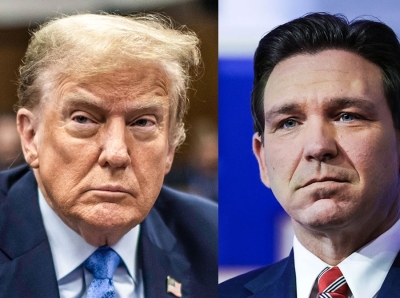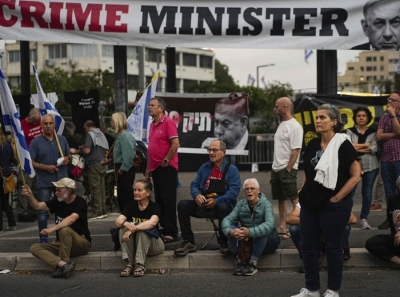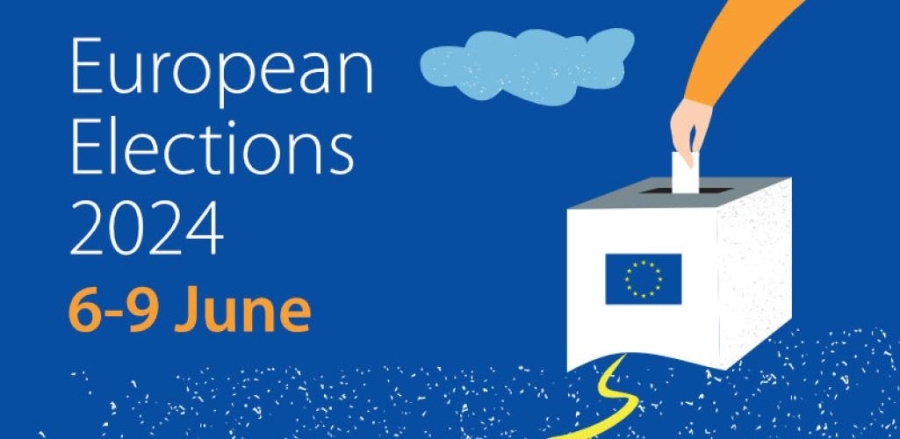“It does seem a bit odd that if you are a French citizen living in Bali, then you can vote in the European Parliament elections, yet if you are an Irish citizen living in Belfast you can’t.”
Questions were raised at the UK Parliament, as to why Irish and British citizens living in Northern Ireland cannot vote and stand in the upcoming elections for the European Parliament – despite the region in effect remaining in the Single Market.
The issue was raised by the former Deputy Speaker of the Northern Ireland Assembly, Jane Morrice, who helped architect the Good Friday Agreement more than 25 years ago.
It comes at a time when the Northern Ireland Assembly has just got up and running again after two years of stalemate over the Brexit trade agreement.
The Citizens’ Rights APPG, held in one of the meeting rooms off Westminster Hall, where Queen Elizabeth II lay in state, had been hearing about voting rights of EU citizens resident in the UK, in the upcoming local and general elections.
The focus of the meeting, organised by New Europeans UK, then shifted to the European Parliament elections in June, which many EU citizens living in the UK will be able to vote in, if their country of origin allows its citizens to vote from abroad. All but four of the 27 EU nations allow their citizens to vote from abroad.
Ireland among four nations disenfranchising citizens abroad
Jane Morrice wanted to know what is being done to accommodate the European rights of the citizens of Northern Ireland – referring to those with either British or Irish citizenship or both – at the European Parliament elections in June.
She questioned why the citizens of Northern Ireland will not be able to vote or stand in those elections.
Jane Morrice, who was head of the European Commission Office in Northern Ireland, then went on to say that she wasn’t necessarily looking for an immediate answer, but wanted to raise awareness of the half a million EU citizens in Northern Ireland being disenfranchised at the European Parliament elections, taking place from June 6 to 9.
The Good Friday Agreement established that people born in Northern Ireland can choose to hold Irish or British citizenship or both.
A union of citizens
The Brexit negotiations and government break-down
The Northern Ireland Protocol was the first trade agreement struck between the UK and the EU, as part of the wider Brexit negotiations.
It came into force on 1st January 2021 with the aim of avoiding a hard border between Ireland and Northern Ireland.
But it meant new checks on goods arriving at Northern Ireland’s ports from Great Britain, which in effect created a border down the Irish Sea, which upsets unionists, who believe it undermines Northern Ireland’s place within the United Kingdom.
This also led the DUP to boycott Northern Ireland’s power-sharing administration at Stormont.
The protocol was later amended with a new agreement called the Windsor Framework, which introduced a system of two trade lanes.
The green lanes are for goods remaining in Northern Ireland with minimal paperwork and no checks. The red lanes are for goods that may end up in the EU and hence continue to require checks. The system came into operation on 1st October 2023 despite the DUP refusing to support it.
Deadlock broken
The deadlock was finally broken earlier this year, when the DUP agreed to a new trade agreement called “Safeguarding the Union” following negotiations with the British government.
The deal will further reduce checks and paperwork on goods moving from the rest of the UK into Northern Ireland.
It also paved the way for the DUP to end its boycott of the devolved government and the Northern Ireland Assembly at Stormont is now up and running again.
It was a historic moment, as Sinn Féin vice president Michelle O’Neill was appointed Northern Ireland’s first nationalist first minister.
The role of deputy first minister was taken up by the DUP’s Emma Little-Pengelly. Devolved government in Northern Ireland can only operate on a cross-community basis with the involvement of both unionists and nationalists according to power-sharing rules.
The Good Friday Agreement, also known as the Belfast Agreement, was signed on April 10th, 1998. It is widely seen as having brought to an end to a 30-year-conflict in Northern Ireland, known as The Troubles, which cost more than 3,500 lifes.
Devolved government in Northern Ireland can only operate on a cross-community basis with the involvement of both unionists and nationalists according to power-sharing rules.
The Good Friday Agreement, also known as the Belfast Agreement, was signed on April 10th, 1998. It is widely seen as having brought to an end to a 30-year-conflict in Northern Ireland, known as The Troubles, which cost more than 3,500 lives.
Click here for more on Politics at EU Today
________________________________________________________________________________________________________

Follow EU Today on social media:
Twitter: @EU_today
@EU_sports
Facebook: https://www.facebook.com/EUtoday.net/
https://www.facebook.com/groups/968799359934046
YouTube: https://www.youtube.com/@eutoday1049











